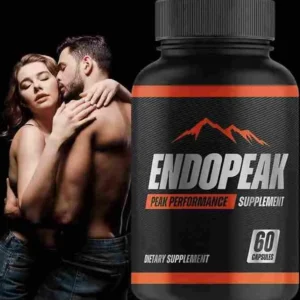
Unlocking Mobility: A Review of Natural Supplements for Canine Hip Dysplasia
$294.00
Discover the natural supplements that can help alleviate hip dysplasia in dogs, providing relief from pain and improving mobility. Explore the effectiveness, safety, and potential benefits of these supplements to support your dog’s joint health and overall well-being.
Description
Natural Supplements for Dogs with Hip Dysplasia: A Comprehensive Guide
Hip Dysplasia: An Overview
Hip dysplasia is a common orthopedic condition in dogs, particularly in large breeds. It occurs when the hip joint, where the thigh bone (femur) meets the pelvis (acetabulum), does not develop properly, leading to instability and pain.
Conventional Treatment Options for Hip Dysplasia
Conventional treatments for hip dysplasia may include:
- Medications (e.g., pain relievers, anti-inflammatories)
- Physical therapy
- Surgery
Natural Supplements for Dogs with Hip Dysplasia: An Alternative Approach
While conventional treatments are effective in managing hip dysplasia symptoms, they often come with potential side effects. Natural supplements offer a complementary approach that can support joint health and reduce discomfort without the risks associated with medications or surgery.
Essential Supplements for Dogs with Hip Dysplasia
Several key supplements have shown promising results in supporting dogs with hip dysplasia. These include:
1. Glucosamine and Chondroitin
- Glucosamine and chondroitin are natural compounds found in the cartilage that cushions the hip joint. They support cartilage production and reduce inflammation.
2. MSM (Methylsulfonylmethane)
- MSM is an organic sulfur compound that promotes joint mobility and reduces pain.
3. Omega-3 Fatty Acids
- Omega-3 fatty acids, found in fish oil, have anti-inflammatory properties and support overall joint health.
4. Turmeric
- Turmeric contains curcumin, a powerful antioxidant and anti-inflammatory compound that can reduce joint pain and inflammation.
5. Green-Lipped Mussel
- Green-lipped mussel extract contains glucosaminoglycans (GAGs) and other nutrients that support joint repair and reduce pain.
Other Beneficial Supplements
In addition to the essential supplements listed above, several other supplements may provide additional support for dogs with hip dysplasia. These include:
- Hyaluronic acid: A lubricant that helps reduce friction in the hip joint.
- Boswellia: An herb with anti-inflammatory properties.
- Devil’s claw: A herb that reduces pain and inflammation.
- Yucca: A plant extract with antioxidant and anti-inflammatory properties.
Choosing the Right Supplement
When selecting supplements for your dog with hip dysplasia, it is crucial to:
- Consult with your veterinarian: Always consult with your vet before giving your dog any supplements to ensure they are safe and appropriate.
- Read the labels carefully: Pay attention to the ingredients, dosages, and any potential side effects.
- Choose high-quality supplements: Look for supplements from reputable brands that use pure and standardized ingredients.
Dosage and Administration
The recommended dosage of natural supplements for dogs with hip dysplasia will vary depending on the supplement and the size of your dog. It is essential to follow the instructions on the supplement label and consult with your veterinarian for guidance.
Potential Side Effects
Most natural supplements are well-tolerated by dogs; however, some may cause mild side effects, such as:
- Gastrointestinal upset
- Allergies
- Interactions with medications
If your dog experiences any adverse reactions, discontinue use and consult with your veterinarian.
Benefits of Natural Supplements
Natural supplements can provide several benefits for dogs with hip dysplasia, including:
- Pain relief: Reduces inflammation and pain in the hip joint.
- Improved mobility: Increases range of motion and reduces stiffness.
- Joint support: Promotes joint health and cartilage repair.
- Antioxidant protection: Protects against free radical damage and oxidative stress.
- Reduced risk of complications: May slow down the progression of hip dysplasia and prevent the need for surgery.
Conclusion
Natural supplements offer a safe and effective approach to managing hip dysplasia in dogs. By incorporating these supplements into your dog’s routine, you can help support their joint health, reduce pain, and improve their overall quality of life. Always consult with your veterinarian before giving your dog any supplements and choose high-quality products that are tailored to your dog’s specific needs.



